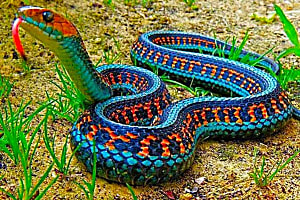JAIPUR: If one has to take lessons on swachhta (cleanliness), take it from
Antarctica.
Rajiv Kumar, who hails from Sikar, was one of the 23-member team represented India in an Indian Scientific Expedition to Antarctica, said, "Our team stayed there for a year and it was not allowed to throw even a chocolate wrapper on the ground. We had to store all such trash and garbage to dispose them in Cape Town in South
Africa. The trash and garbage was transported by ships."
"There were three stations close to each other for research, belonging to India, Russia and China. Even if you are out of your station for research and you have to urinate, you are not allowed to do it. You have to collect it a bottle and keep it in your station, which is transported by ships for proper disposal. For garbage disposal and maintaining cleanliness, the standard is quite high," said Kumar.
In Antarctica, the penguins inhabit the place in large numbers. But, no member of the team was allowed to touch them. "There were clear directions that no one will feed the animals such as penguins and even touching the animals was not allowed. In whole, it was not allowed to disturb the environment of Antarctica by any sense," said Kumar.
He reached Sikar on December 17 from the mission, which was organised by
National Centre for Antarctic and Ocean Research (NCAOR) under ministry of earth science, government of India. It was the 36th Indian Scientific Expedition to Antarctica.
Among the 23-member team, there were scientists from India Meteorological Department, National Centre for Antarctic and Ocean Research (ESSO-NCAOR), Geological Survey of India (GSI), and Survey of India (SOI) along with the departments of the government. For scientists, research in Antarctica is helpful as it has deep effect on the earth's climate and ocean systems.
Kumar was selected as a member of medical team to provide treatment to Indian scientists who would fall ill. But, the Indian medical team, not only provided medical facilities to Indian scientists but also the officials of China's research station.
"Since Russian and Chinese research stations were close to each other, we had a cordial and friendly relationship. They visited our research station on August 15 and January 26 to congratulate us on Independence Day and Republic Day. When we needed something they provided us and when they needed something we provided them. Once a Chinese leader fell ill. We reached their research centre and treated him," he said.
He also said that the sky becomes beautiful during polar nights. "The colour of sky turns green and purple. It is an amazing view, which I will miss coming back to India. It (polar nights) remains for three to four months (full darkness for 24 hours)," he said, adding that life is not easy in Antarctica where temperature goes down up to minus 45 degrees.
It is an uninhabited and remote continent having hostile conditions. Indian scientists study different aspects of earth and related issues such as sciences of atmospheric, biological, earth, chemical, and medicine. Kumar was posted at Bharti research station which was set up in 2012.
 Representative Image
Representative Image Representative Image
Representative Image



